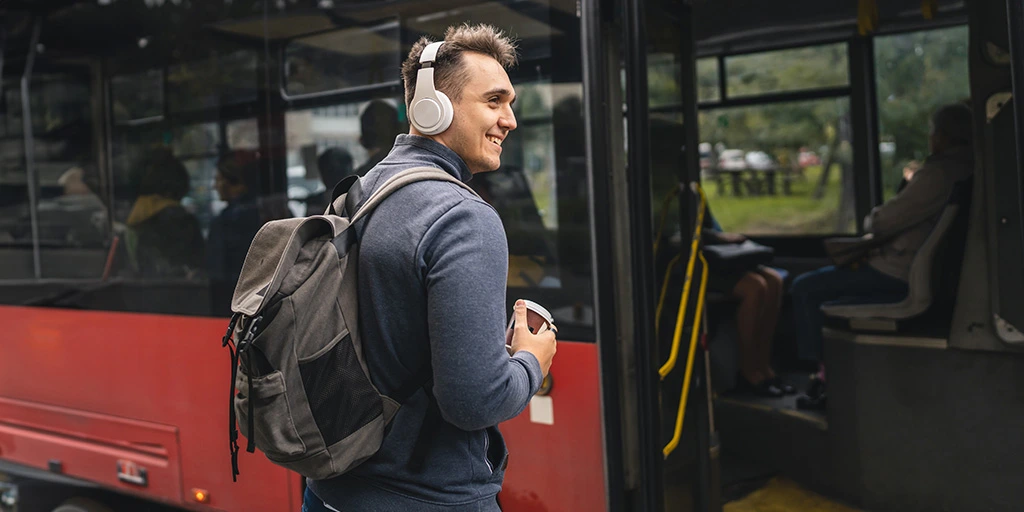Navigating Independent Living for Individuals with Autism
Updated on May 30, 2024From daily living, to social interactions, to employment, embarking on the journey to independent living holds both unique challenges and victories for individuals navigating life with autism. In this blog post, we’ll explore pragmatic insights, real-world strategies, and innovative solutions to empower and fulfill the lives of those on the autism spectrum. We’ll dive into the practicalities and nuanced aspects of self-sufficiency, including tailored support, early interventions, and fostering a supportive environment — all of which are key in promoting independence. It’s not just about conquering obstacles; it’s about crafting a lifestyle that respects individuality.

Understanding Autism and Independence
For individuals with autism, learning to live independently is a transformative journey towards self-empowerment and personal fulfillment. Navigating this path is much more than a checklist of practical skills and mechanical tasks such as mastering cooking, cleaning, and personal hygiene. Amidst these skills, emotional support is the unseen backbone. Regular check-ins and the flexibility to adapt strategies based on individual emotional needs are vital. So too, is creating an environment where mistakes are seen as opportunities to learn and grow, and where achievements, no matter how small, are celebrated with genuine enthusiasm. In this way, independence crafts a life rich in emotional fulfillment, self-esteem, and a genuine sense of belonging.
Key Skills for Independent Living
Developing daily-living skills is crucial for promoting independence in autistic adults. In the realm of cooking, it’s beneficial to focus on foundational skills such as meal planning, grocery shopping, and recipe-following. Visual aids and step-by-step instructions can significantly enhance comprehension and execution. Cleaning skills can be honed by breaking down tasks into manageable steps, establishing daily and weekly routines for maintaining a tidy living space. Personal hygiene routines should be personalized, utilizing visual schedules and social stories to reinforce the importance of self-care.
Mastering financial skills is another central component of independent living. Budgeting, including income, expenses, and savings, can be taught through visual and interactive methods. There are various budgeting apps and tools available to simplify the process. Understanding the importance of paying bills on time is crucial. Creating a system for organizing bills and setting up reminders can facilitate this. Additionally, comprehending different types of expenses and their purposes can be achieved through breaking down these concepts and exploring online resources or apps for expense tracking.
Effectively managing time and staying organized are vital for autonomy and can be especially challenging for autistic individuals. Here, too, visual schedules or planners help in organizing daily activities, while breaking tasks into smaller time blocks improves focus. Establishing a system for organizing personal belongings, incorporating labels, color-coding, or storage bins, can significantly contribute to overall organization.
Practicing social interaction should not be overlooked as part of a core set of independent living skills. Success in this area lends itself to all others through enhanced wellbeing. This can be done via role-playing various social scenarios and appropriate interactions to provide guidance in different social situations. Regular interaction and positive reinforcement are key. Involvement in support groups or with occupational therapists can further enhance social skills and communication.

Preparing for Independent Living
Preparing autistic adults for independent living involves a multifaceted approach that encompasses early life experiences, education, and strategic transition planning.
In the early stages, identifying autism promptly allows for the development of individualized education plans (IEPs) tailored to address specific needs and capitalize on unique abilities. This approach should integrate social skills development from an early age, emphasizing training that facilitates better interpersonal relationships and interactions. Additionally, incorporating a life skills curriculum into the educational framework, covering areas such as cooking, self-care, and financial management, is essential.
A pivotal aspect of preparing for independent living is the formulation of a well-crafted transition plan, ideally centered around the individual’s strengths, preferences, and personal goals. Collaboration with families is paramount during this process, ensuring a seamless transition and a comprehensive understanding of the individual’s needs. Work-based learning opportunities, including internships during high school, provide invaluable experiences and exposure to different vocational options. Equipping autistic individuals with self-advocacy skills is equally important, developing the ability to express their needs and preferences effectively.
Vocational training and employment preparation further contribute to the successful transition to independent living. Specialized vocational programs tailored to individual interests and abilities, coupled with job coaching services, create a supportive environment for skill development. Networking opportunities and mentorship programs play a vital role in connecting autistic individuals with professionals in their chosen fields, developing a sense of belonging and guidance.
To substantiate the importance of preparing autistic adults for independent living, one can argue for the adoption of inclusive employment policies that recognize the value of neurodiversity in the workplace. Highlighting the economic benefits of investing in vocational training and independent living skills further strengthens the case for comprehensive support.

Resources and Support for Independent Living
Families play a pivotal role in developing independence, cultivating understanding, clear communication, and gradual autonomy. Recognizing and building upon the individual’s strengths is essential, along with advocating for inclusive environments in schools and workplaces. The family’s role extends to celebrating achievements, nurturing self-esteem, and creating a supportive atmosphere that allows the individual to flourish.
Professional support forms a crucial component, with therapists, counselors, and life coaches specializing in autism offering tailored assistance. Occupational therapists aid in practical skill development; speech therapists address communication challenges; and behavioral therapists provide strategies for emotional regulation. Life coaches focusing on autism can contribute to goal-setting and achievement, further promoting independence in various aspects of life.
Community resources augment this support network. Independent living programs offer targeted skill development, while support groups, both local and online, provide a platform for shared experiences and mutual learning. Recreational and social programs tailored to autistic individuals promote not only skill enhancement but also valuable social connections. Engaging with these community resources creates a broader support system that extends beyond immediate family and professional circles.
In anticipating the evolving needs of autistic individuals, it is essential to explore and incorporate assistive technologies that enhance communication, organization, task completion, and safety. Communication apps support verbal and non-verbal expression; Task management apps aid in organization and time management; and sensory tools offer comfort for individuals with sensory sensitivities.
Safety wearables, equipped with GPS tracking and emergency features, enhance the overall safety and security of autistic individuals. This type of dedicated assistive technology makes it possible to break free from the cycle of safety concerns that often confine autistic people to restrictive environments and thwart their path to autonomy. For example, assistive technology with GPS tracking often makes it possible to begin using public transportation for the first time, serving as a primary enabler for other functions. Moreover, the benefits of this type of dedicated assistive technology for promoting well-being extend beyond the lives of autistic individuals to their entire support networks by proactively alerting them to dangers without constant vigilance or worrying.
The cultivation of confidence is an ongoing process, emphasizing a mindset of lifelong learning and adaptability. Encouraging autistic individuals to explore new technologies, participate in workshops, and stay informed about evolving societal changes contributes to a resilient and confident approach to independent living.
Housing Options for Autistic Adults
Selecting the right living situation involves a thorough assessment of individual needs, preferences, and independence levels. The surrounding community’s social dynamics, accessibility to support services, and proximity to family and friends are critical factors. Financial considerations, including affordability and available aid, also play a crucial role.
Fully Independent Living:
- Apartments or Condos: Many autistic adults can thrive in fully independent settings like apartments or condominiums. This provides them with personal space while allowing for a degree of autonomy.
- Supported Living Services: Some individuals may require minimal support in the form of periodic check-ins or assistance with specific tasks. Various organizations provide such services.
Shared Housing:
- Roommates or Co-Housing: Living with roommates or in co-housing arrangements can provide social interaction and mutual support. It’s crucial to match individuals with compatible living styles and needs.
Group Homes or Assisted Living:
- Small Group Homes: These homes cater to a small number of individuals and provide a structured environment with support staff to assist with daily living skills.
- Assisted Living Facilities: Facilities with varying levels of support, ranging from minimal assistance to more comprehensive care, can be suitable for autistic adults with different needs.
Navigating the legal landscape involves understanding fair housing laws, which prohibit disability-based discrimination. Knowledge of the right to request reasonable accommodations is vital for tailoring living spaces to individual needs. Consideration of guardianship and decision-making, in accordance with legal frameworks, strikes a balance between autonomy and necessary support. Researching government assistance programs further aids in creating a housing strategy that aligns with the rights and needs of autistic adults.
In conclusion, the journey toward suitable housing for autistic adults encompasses various options, each requiring careful consideration. A personalized approach, accounting for individual preferences, support needs, and legal aspects, ensures a holistic and empowering living situation.
Notable Success Stories
Several notable individuals with autism have not only achieved independence but have excelled in their respective fields.
Temple Grandin, diagnosed with autism at an early age, overcame challenges to become a pioneering animal scientist and professor. Her success is grounded in her unique perspective, which allows her to understand animal behavior in ways others might not. The lesson learned from Grandin’s path is the value of embracing diverse perspectives in scientific fields. Her strategies involve using her sensory sensitivities as an advantage, allowing her to design more humane and efficient livestock facilities.
Haley Moss, a lawyer and artist on the autism spectrum, has shattered barriers by becoming the first openly autistic person admitted to the Florida Bar. Moss emphasizes the importance of self-advocacy and neurodiversity. Her story teaches us the significance of breaking down societal stigmas associated with autism. Moss employs strategies such as open communication about her neurodiversity, encouraging others to embrace their unique strengths.
Daniel Tammet, a British writer and autistic savant, is renowned for his extraordinary mathematical and linguistic abilities. His story teaches us that embracing and celebrating one’s strengths, even if unconventional, can lead to exceptional achievements. Tammet’s strategy involves turning his unique cognitive abilities into a powerful asset, showcasing the value of neurodiversity in intellectual pursuits.
Dr. Stephen Shore, diagnosed with autism at a young age, has become a professor of special education and a prominent advocate for neurodiversity. His story emphasizes the importance of early intervention and inclusive education. Shore’s strategy involves promoting understanding and acceptance of neurodiversity in educational settings.
Daryl Hannah, a well-known actress from films like “Blade Runner” and “Splash,” openly shares her autism diagnosis. Her success in the creative industries challenges stereotypes and promotes acceptance. The lesson learned from Hannah’s career is that neurodiversity can be a source of creativity and innovation. Her strategy involves using her unique perspective to bring depth and authenticity to her performances, contributing to the broader cultural conversation around autism.
These individuals showcase the diverse ways in which autism can be an asset rather than a hindrance. Lessons learned from their stories include embracing unique perspectives, advocating for neurodiversity, leveraging sensory sensitivities, promoting open communication, and using unique perspectives for creative endeavors.
The Evolving Autism Experience and Independent Living
Independence plays a crucial role in enhancing the quality of life for autistic individuals, empowering them to navigate the world on their terms, promoting self-confidence and a sense of control. This is not only essential for personal fulfillment but also contributes to societal inclusivity by recognizing diverse ways of engaging with the world.
The landscape of support and understanding for autism is evolving, with increased awareness leading to more inclusive practices. Recognizing neurodiversity is a positive step toward creating environments that celebrate differences rather than pathologizing them. As society becomes more attuned to the unique strengths and challenges of autistic individuals, there is a growing commitment to developing resources and programs that promote inclusion, understanding, and support.
In conclusion, independence, continuous learning, and the evolving landscape of support are interconnected elements that contribute to a more inclusive and supportive world for autistic individuals. By championing these principles, we pave the way for a society that values diversity, embraces neurodiversity, and provides opportunities for everyone to thrive.
Get peace of mind from AngelSense, the groundbreaking AI-based assistive technology designed to enhance safety and peace of mind for individuals with special needs and their families. Our solution ensures you stay connected with your loved ones, empowering a higher level of independence while maintaining safety. Learn more about how AngelSense can make a difference for your family.

